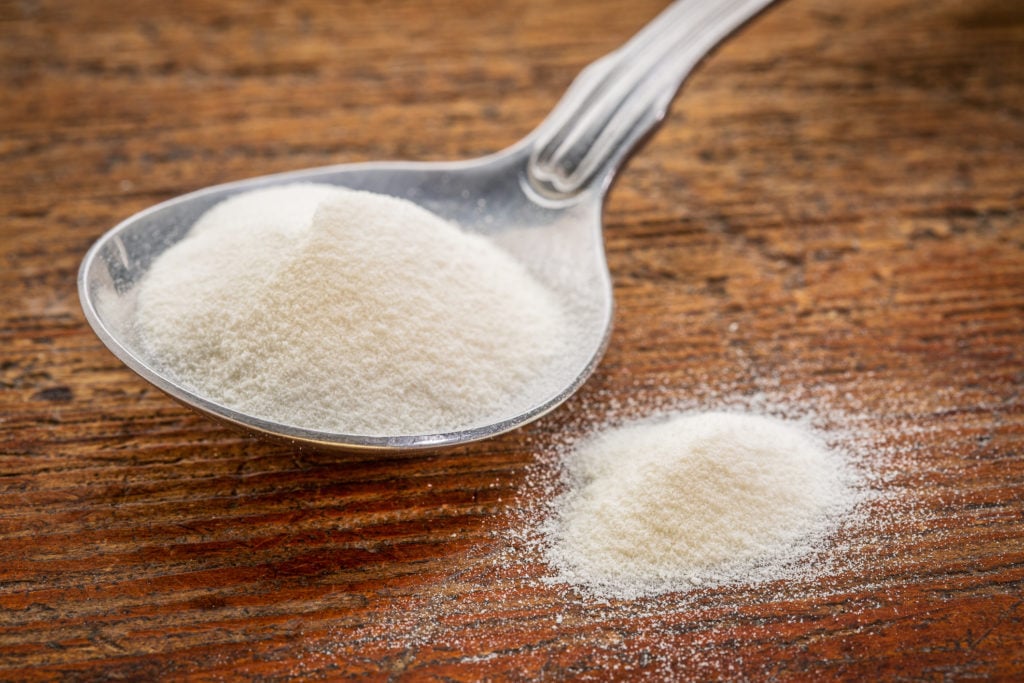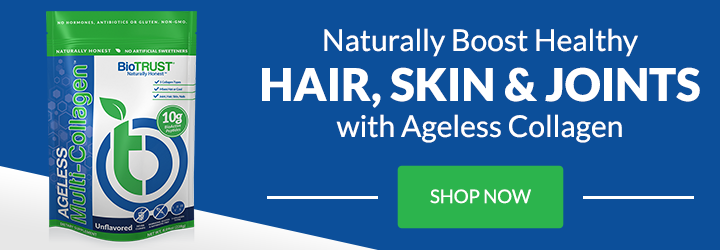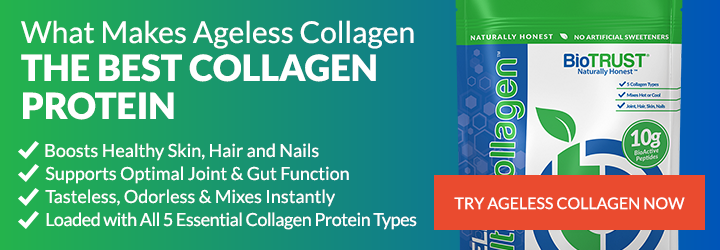Is Collagen Protein Keto Friendly? Here’s the Skinny…

If you are following a ketogenic diet but aren’t quite sure what supplements you can include in your diet that won’t kick you out of ketosis, I may be able to help. Regardless of your specific meal plan, it is important to be mindful of clean ingredients that support your body’s long-term health.
Let’s start at the beginning.
What is the Ketogenic Diet?
The ketogenic diet is high in fat, very low in carbs, and moderate in protein to encourage the body to burn fat for fuel rather than burning carbohydrates. The traditional macronutrient breakdown is 80% of calories from fats, 15% of calories from proteins, and 5% of calories from carbohydrates. This is just a guideline, as this can be tweaked depending on what works best for you as an individual.
This diet has a range of benefits, including helping increase fat burning as once your body enters into ketosis, it can start to burn stored fats for energy due to the lack of glucose in the bloodstream. Seems simple enough, right?
What is Collagen?
One of the most abundant proteins in your body, collagen makes up much of your skin, bones, and muscles. It’s the “glue that holds your body together.” In fact, the word “collagen” comes from the French “collagène.” This literally translates to “glue forming.”
There are 16 types of collagen (at least), but the most noteworthy in the body are:
- Type I, which makes up over 90% of your body’s collagen, and is found in skin, bones, cartilage, tendons, and connective tissue.
- Type II, which can be found mostly within cartilage.
- Type III, which can be found, along with type I, in the skin, muscles, vasculature, and organs. In addition, Type III helps form connective tissue within the liver, bone marrow, and spleen.
BioTrust Nutrition Ageless Multi-Collagen contains all five of the most researched collagen types: Types I, II, III, V, and X, which come from four different sustainable food sources:
- Hydrolyzed collagen peptides from grass-fed, pasture-raised cattle (Types I & III)
- Hydrolyzed collagen peptides from sustainable fish (Types I & III)
- A unique and patented eggshell membrane (Types I, V, and X)
- Native, undenatured collagen from chicken (Type II)
How Can You Include Collagen in a Ketogenic Diet?
Since collagen has been shown to promote bone, muscle, and joint recovery, this would be critical for folks who are active or who regularly exercise.
And since the ketogenic diet limits certain foods from the diet, including some that are important for digestive health, adding in a rich source of collagen like Ageless Multi-Collagen may further promote the health of your gut lining and help keep it functioning at an optimum level. It may also help support the body’s ability to better digest fat.
Collagen peptides are also great for anyone following a ketogenic diet because they may help with:
- Rebuilding tissue
- Reducing inflammation
- Energy production
- Improving digestion
Ageless Multi-Collagen is keto-friendly, and because BioTrust is passionate about better health, we promise Ageless Multi-Collagen powder is:
- Dairy-free
- Cruelty-free
- GMO-free
- Gluten-free
- Hormone-free
- Antibiotic-free
- Free from artificial sweeteners, flavors, and colors
It’s easy to include BioTrust Ageless Multi-Collagen into your healthy diet. Just throw a scoop in your favorite beverage, and enjoy! Ageless Multi-Collagen is odorless and flavorless and features a naturally fermented form of the essential amino acid tryptophan, which makes it a “complete” protein—a key to helping you look and feel your best.
People eating keto can also consume bone broth and the skin, bones, and cartilage found in meat, all of which are excellent sources of collagen and promote a healthy gut function.
Bottom line, collagen is a perfect protein to include in a ketogenic diet. It’s found in the skin, bones, and cartilage, and may help promote the healthy maintenance of these cells in our own bodies.






